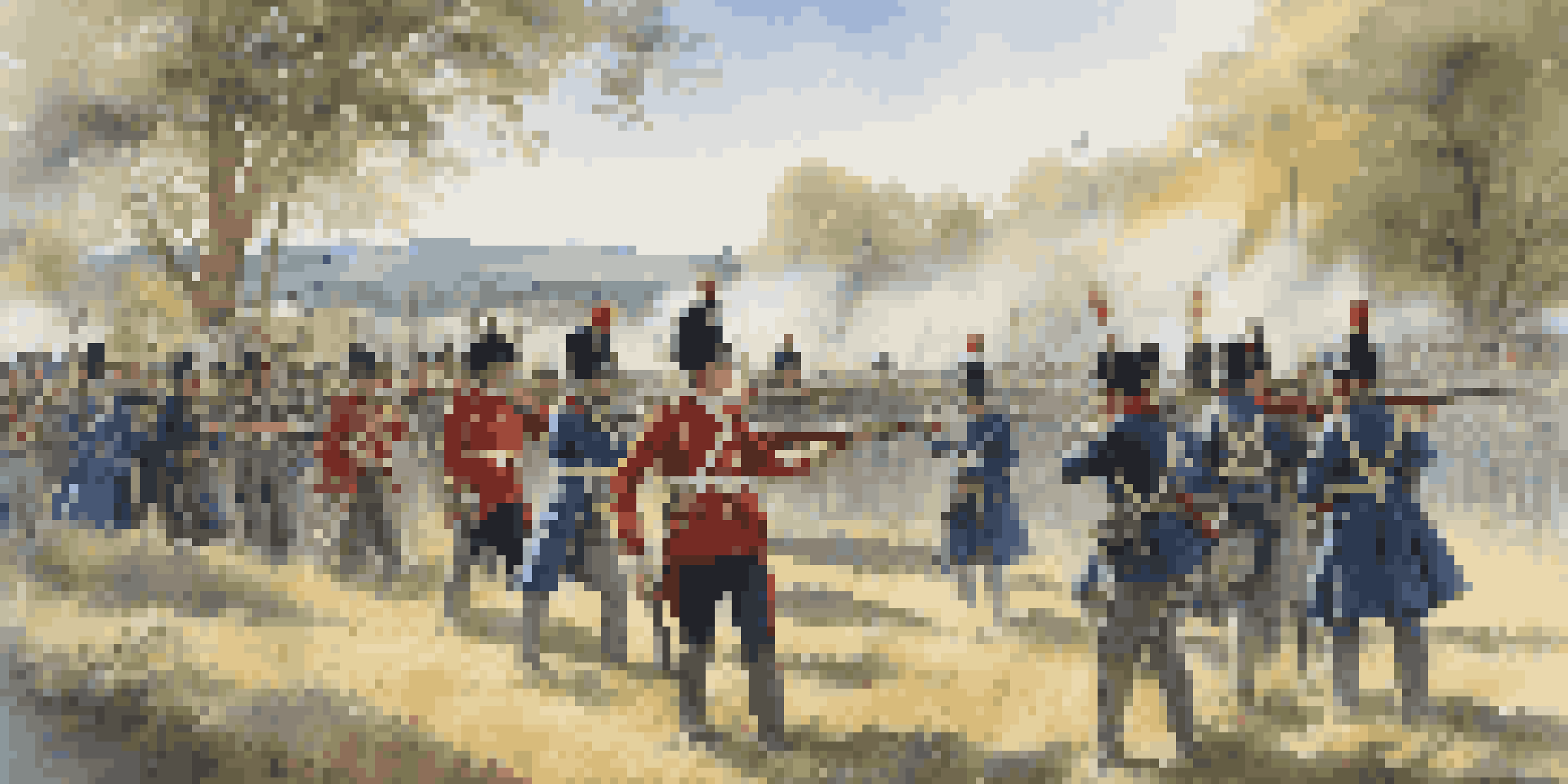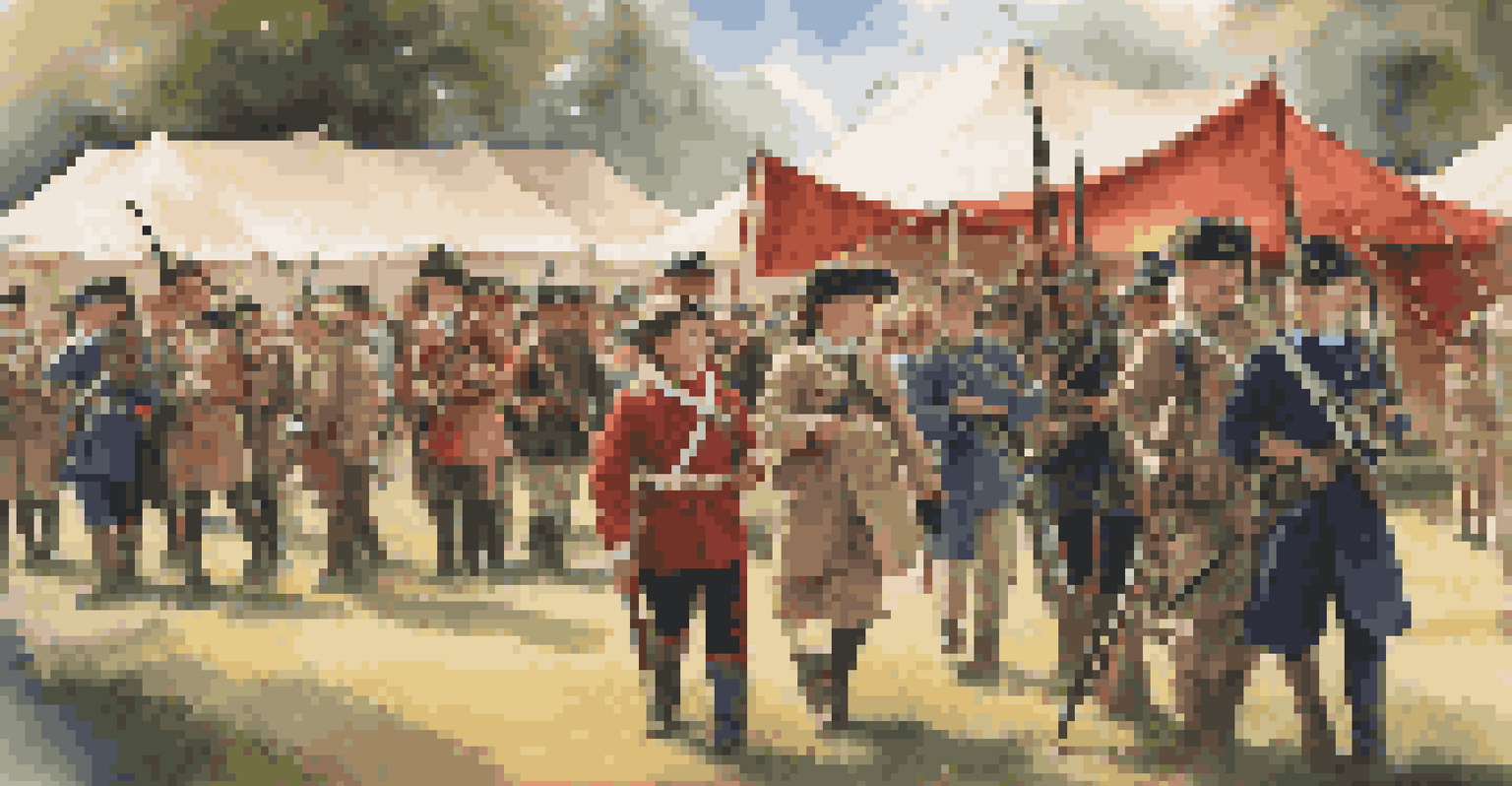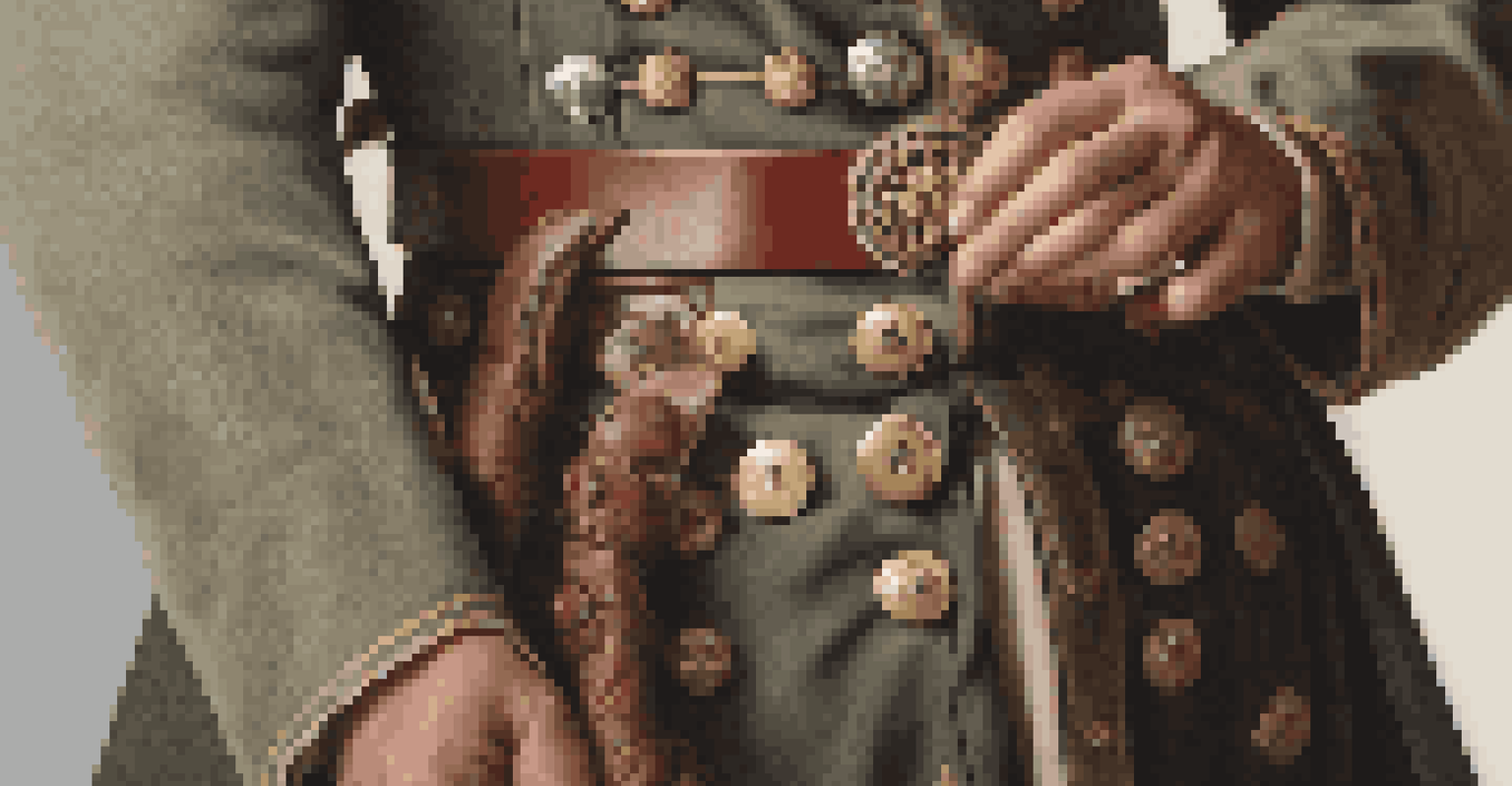Exploring Military History Through Reenactment

What is Military Reenactment and Why Does it Matter?
Military reenactment is a lively way to experience history. Participants don period uniforms, replicate battles, and immerse themselves in historical events. It's not just about wearing costumes; it’s about bringing history to life.
History is not a burden on the memory but an illumination of the soul.
These events help people understand the complexities of military conflicts. By experiencing the emotions and strategies of the time, reenactors and spectators alike can gain a deeper appreciation for the sacrifices made during wars.
Moreover, reenactments encourage a sense of community among history enthusiasts. Whether you’re a novice or a seasoned veteran, these gatherings foster camaraderie and shared passion for preserving history.
The Evolution of Military Reenactments Over Time
Military reenactment has roots that trace back to the 19th century, where veterans would gather to commemorate battles and honor fallen comrades. These early events set the stage for more organized reenactments that began to flourish in the 20th century.

As time went on, these gatherings evolved from simple commemorations to elaborate events that sought to accurately depict historical battles. Today, there are reenactments for various conflicts, from the American Civil War to World War II.
Understanding History Through Reenactment
Military reenactments bring history to life, helping participants and spectators appreciate the complexities of past conflicts.
The evolution of technology also plays a role, as modern reenactments often incorporate sound effects, period-accurate weaponry, and even digital elements to enhance the experience. This blend of history and innovation keeps the practice fresh and engaging.
The Role of Research in Authentic Military Reenactments
Authenticity is the cornerstone of military reenactments, and it begins with thorough research. Reenactors often dive into primary sources, such as letters, diaries, and official records, to capture the true essence of historical events.
We don't remember days, we remember moments.
This commitment to accuracy extends to uniforms, weapons, and even the language used during the reenactments. Participants strive to ensure that every detail reflects the period they are portraying, providing a more immersive experience.
By dedicating time to researching their roles, reenactors not only enhance their own understanding but also educate audiences. This meticulous attention to detail helps to preserve history for future generations.
Experiencing History: What Attendees Can Expect
For those attending a military reenactment, expect an engaging atmosphere filled with sights, sounds, and stories from the past. Events often feature live battles, where participants recreate tactical maneuvers and strategies employed in actual combat.
Beyond the battles, attendees can enjoy interactive exhibits, demonstrations, and talks from historians. These elements provide a well-rounded experience that caters to all ages, making it a fun outing for families and history buffs alike.
Community and Camaraderie in Reenactment
These events foster a strong sense of community among history enthusiasts, creating lasting friendships and shared passions.
Attending a reenactment is not just about watching; it’s about participating in history. Many events encourage audience involvement, whether it's through Q&A sessions or even hands-on activities that allow visitors to learn through experience.
The Community Aspect of Military Reenactment Groups
One of the most rewarding aspects of military reenactment is the community it creates. Participants often form tight-knit groups that share a passion for history and storytelling, fostering friendships that can last a lifetime.
These groups provide a supportive environment for learning and growth. Newcomers can benefit from the experience of seasoned reenactors, receiving guidance on everything from costume design to historical accuracy.
Additionally, reenactment communities often engage in charitable work, using their passion for history to give back. Many groups participate in events that raise funds for veterans or historical preservation efforts, showing that their love for history extends beyond the battlefield.
Challenges Faced by Military Reenactors Today
While military reenactment is a rewarding endeavor, it comes with its own set of challenges. One significant issue is the need for accurate representation, as historical misinterpretations can lead to controversy and misunderstanding.
Financial constraints can also pose difficulties, as acquiring authentic uniforms and equipment can be costly. Many reenactors invest significant time and money to ensure their portrayal is as accurate as possible, which can be a barrier for newcomers.
Challenges and Future of Reenactments
While reenactors face challenges like accurate representation and financial constraints, the future remains bright with evolving technology and engaging formats.
Moreover, as society evolves, so too does the perspective on military history. Reenactors must navigate the balance between honoring the past and addressing contemporary conversations about war and its impact on society.
The Future of Military History Through Reenactment
Looking ahead, the future of military reenactment appears promising as interest in history remains strong. With advancements in technology, organizers are finding new ways to engage audiences, such as virtual reenactments and augmented reality experiences.
Furthermore, as more people seek to understand complex historical narratives, reenactments can serve as a bridge to connect generations. By presenting history in an interactive format, they encourage discussions about the implications of war and peace.

Ultimately, military reenactments will continue to evolve, providing valuable insights into our past while fostering a sense of community and appreciation for the sacrifices made by those who came before us.